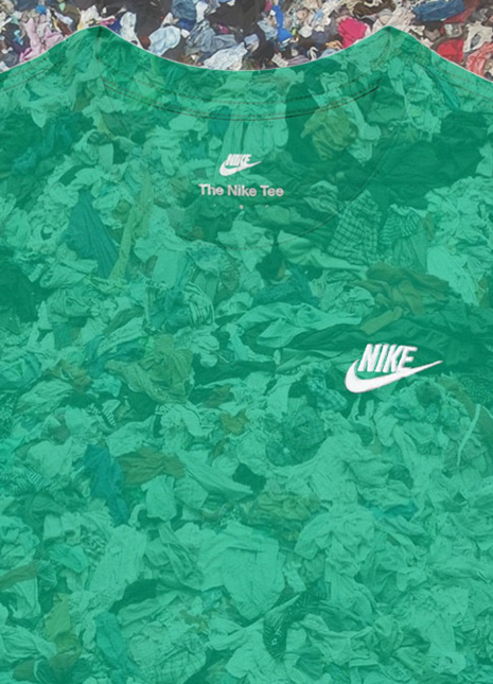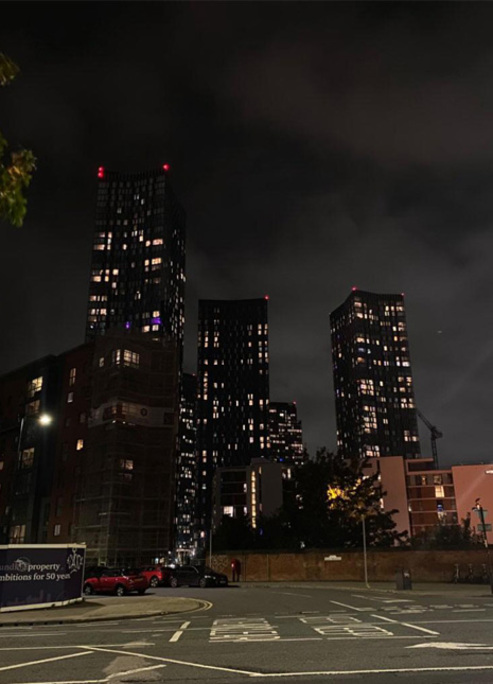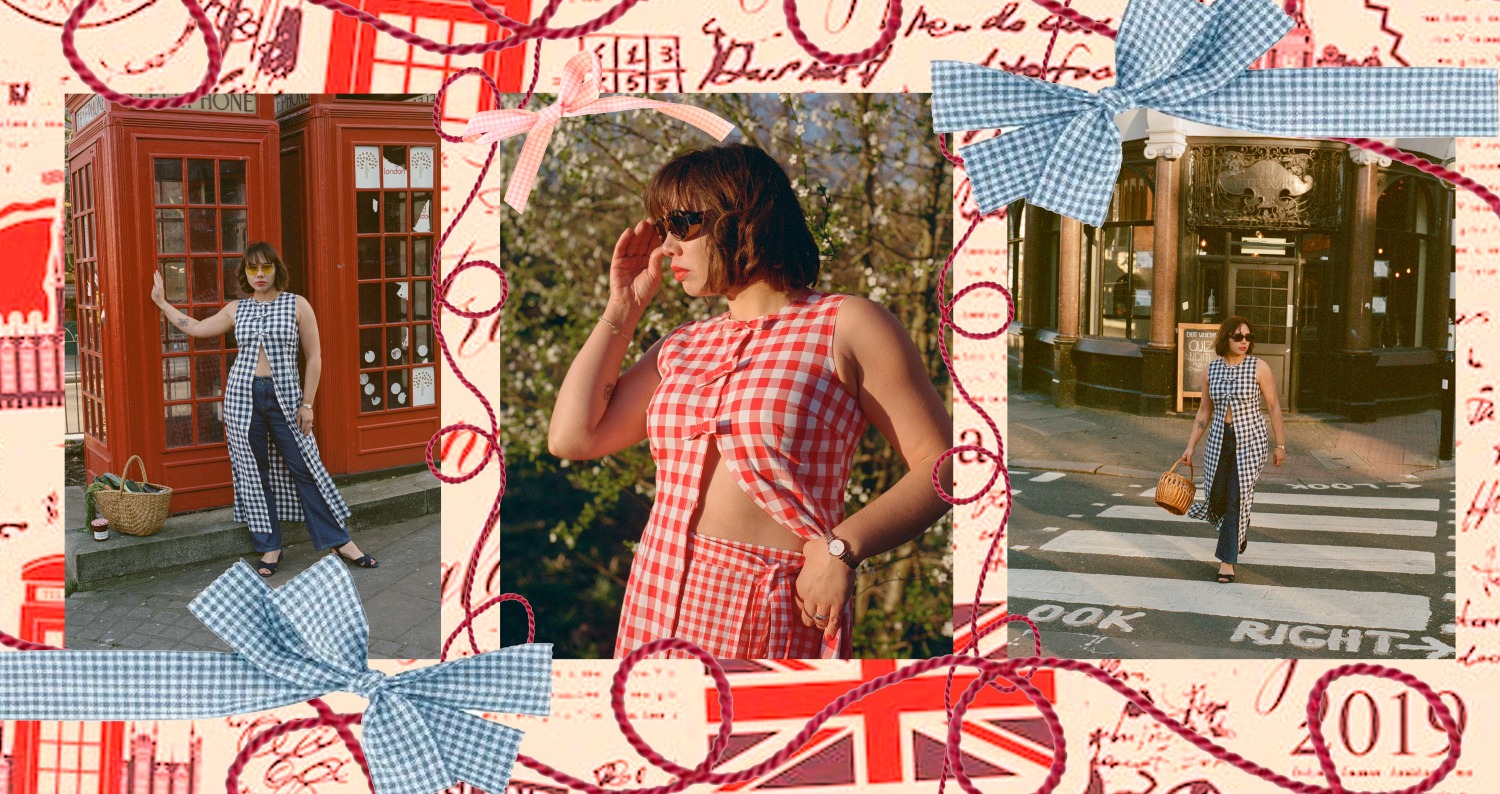
How Bonkers Bon Coeur Is Stitching A Kinder Future For Fashion
With Paris in its heart and London in its seams, Bonkers Bon Coeur celebrates slow fashion that’s vibrant, conscious, and completely its own.
A powerful counterpoint in an industry often overlooked by scale, trend cycles, and speed, Bonkers Bon Coeur champions slow, sustainable fashion without sacrificing creativity or charisma. Founded by Amanda, Bonkers Bon Coeur constructs each piece to order using ethically sourced materials whilst working with a seasoned local seamstress, a revolutionary model that feels needed in the current fashion landscape.
I was lucky to speak with Amanda about her inspirational story. From turning nap times into self-taught lessons in garment construction to balancing motherhood with starting a business, her journey uncovers an empowering dedication to doing things differently.
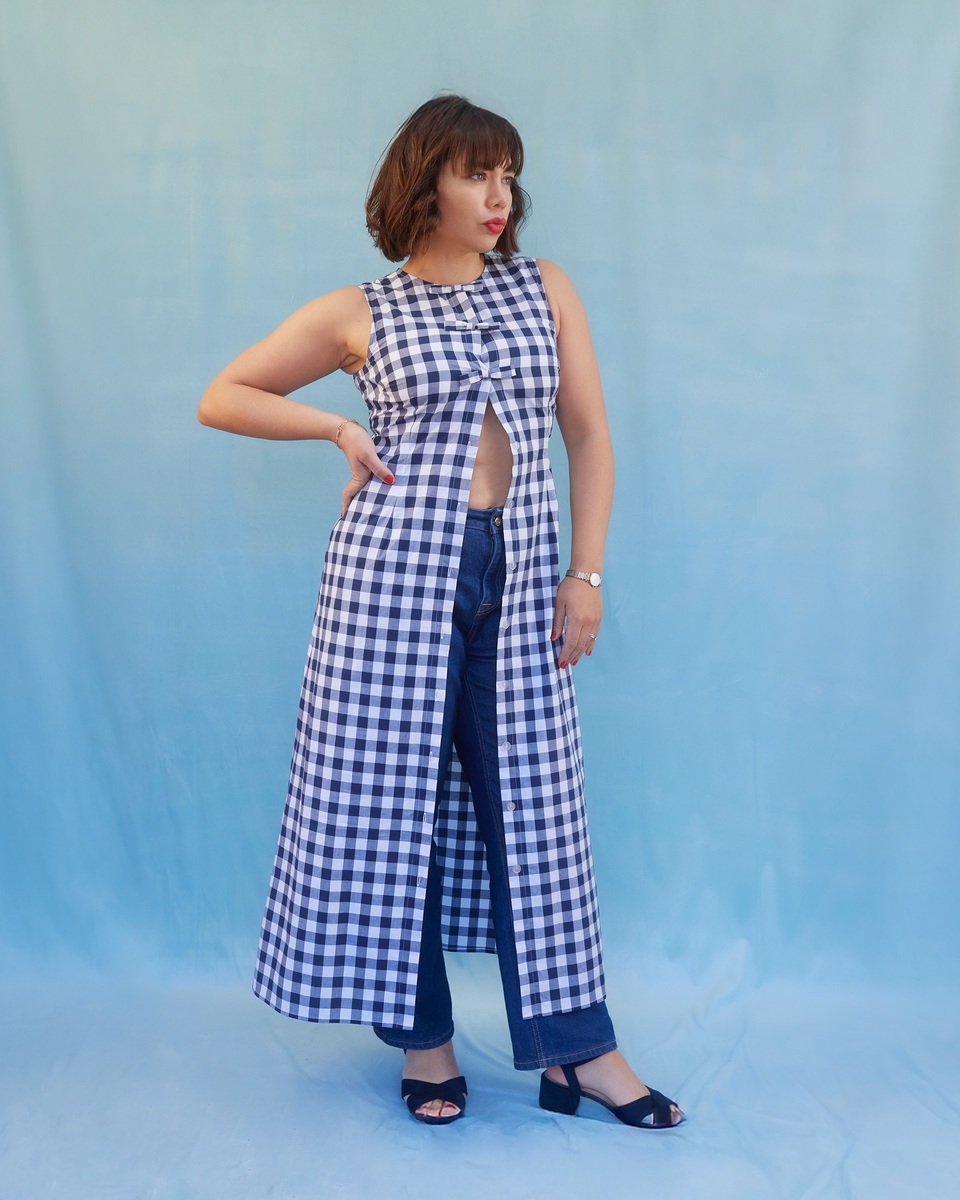
Hey Amanda, I’m so excited to be sitting with you today to discuss your amazing brand and background in sustainability and fashion!
Firstly, for those who are new to your brand, who is Bonkers Bon Coeur?
Hello! I am feeling just as excited! Bonkers Bon Coeur is a slow and sustainable fashion brand. Everything's created to order here in North London by me and a local seamstress with 25 years of experience (her craftsmanship is truly unmatched.) We use materials that all have a form of sustainable components. (At this point, there is no such thing as a perfectly sustainable fabric, but some options are significantly better than others!)
In English, bonkers means a bit crazy, while the French bon coeur translates to “good heart.” Personally, those qualities are often two sides of the same coin. The best experiences tend to contain a little of both and I hope, over time, to reflect that spirit through my brand.
How have Paris and London shaped your design ideas and creative vision?
I’m really drawn to the effortless chic of classic Parisian fashion, but I also adore the bolder, more eccentric style you often see in London. Nevertheless, I often find the Parisian style slightly too safe and the London style somewhat messy. So, I try to create pieces that feel timeless and elegant yet playful and vibrant; this way, I strike a harmony between the best of both worlds.
Additionally, I take a lot of style inspiration from old films set in Paris and London. I recently rewatched The Umbrellas of Cherbourg (1964), and it left me brimming with ideas for the autumn-winter collection!
There’s this deep emotional connection I have to both cities. I moved to Paris in my mid-twenties with nothing but a suitcase and left for London six years later with a husband, a cat, three kids, and a moving truck full of memories. It was a paramount coming-of-age chapter in my life. And here in London, where I’ve been ever since, I’ve thrived in the city’s more liberal mindset. My confidence and connection to my authenticity have grown so much in this environment. (People often forget how much of a tolerant melting pot London is, especially when you compare it to so many other places!)
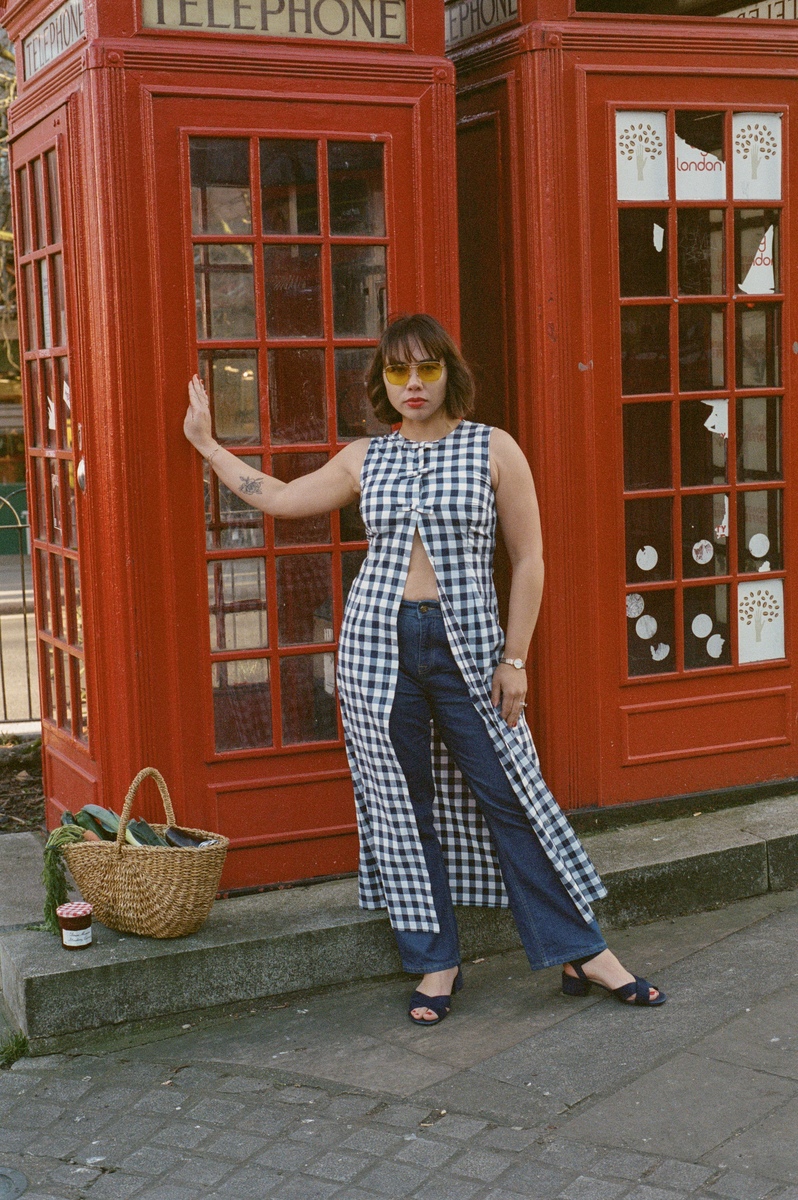
What’s one piece from your current Bonkers Bon Coeur collection that best represents your mission, and why?
The Rosalie 2-in-1 shirt dress! A versatile piece that's wearable as both a top and a dress. Going hand in hand with sustainability, it's a single, long-lasting piece that does the job of two.
In your view, what’s the biggest misconception people have about fast fashion vs. sustainable fashion?
That sustainable fashion is too expensive. But I invite us all to consider the following:
Perhaps fast fashion is too cheap?
How can a top that takes three hours to make, not to mention all the hidden labour involved in its production and distribution, cost only £20?
Even if the top is made in a country with a lower cost of living and exchange rate than the UK, people, often including children, who make these items are usually underpaid and work long hours in poor conditions.
Maybe fast fashion is teaching us to normalise poor quality?
Clothing quality has declined dramatically compared to 30 years ago. The change has been so gradual that many haven't noticed, and those who have often accept it as the norm. Yet, constantly replacing clothing is more expensive in the long run.
Perhaps the true cost of fast fashion is the devastating impact on our planet?
The textile industry is the second-largest polluter in the world. Is this the legacy we want to leave for future generations? I look at my children and their friends, and I feel deeply lost about what we are handing down to them.
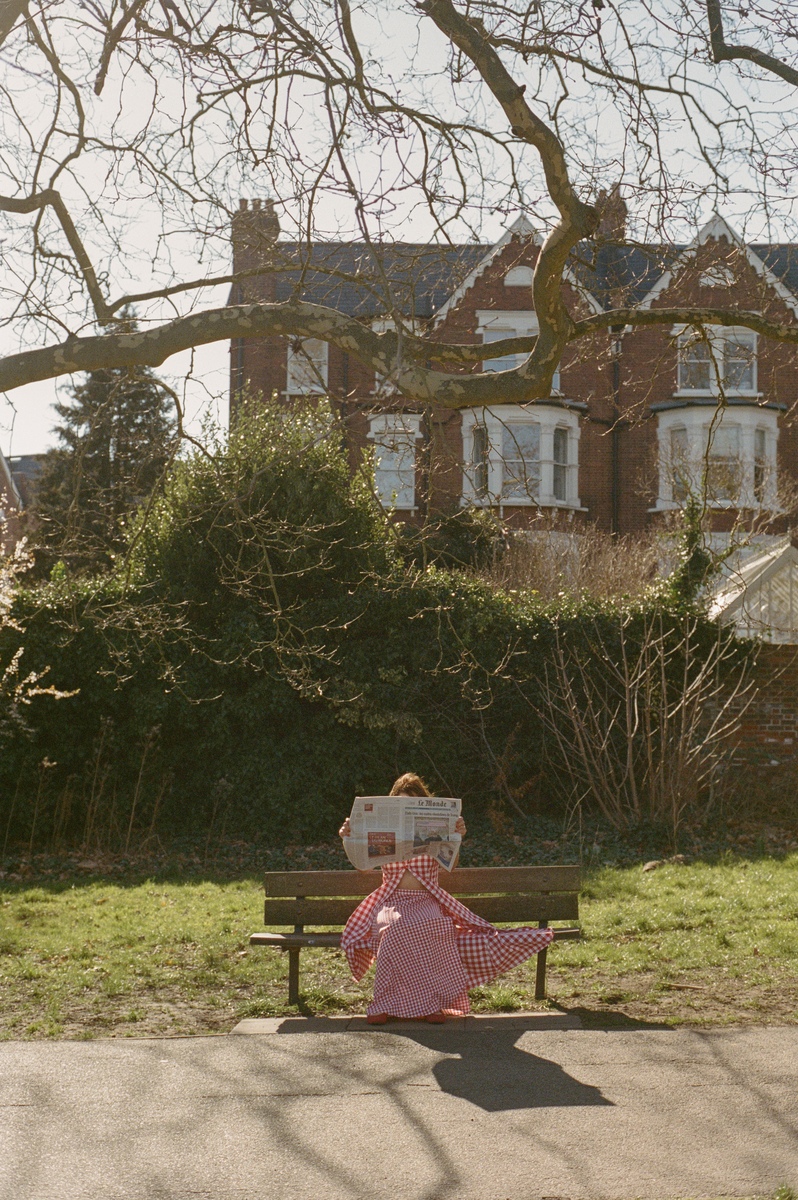
What are your thoughts on the current state of fast fashion and its influence on consumers?
Fast fashion offers a broadly accessible, instant hit of gratification and distraction for a stressed-out, overworked, fast-paced society. It is a symptom of a bigger problem: the pace and structure of modern life do not allow most of us to lead balanced private lives.
I know I am going into the philosophical and political here; I genuinely want people to reflect on the reality that we are getting far too many dopamine hits from consumption and not enough from connection and purpose.
On top of that, the fashion industry is a shroud of mystery, and that’s very much by design. Set up so that consumers don’t see the uncomfortable realities behind creating garments that intend to evoke the opposite - glamour, joy, etc. Until two years ago, my husband thought our clothes were made entirely by machines, and honestly, I did too until my late twenties. And I know we’re not alone in that misconception. The current truth is that clothing production is still something technology hasn’t fully taken out of human hands.
I am so inspired by your story of starting Bonkers Bon Coeur, specifically turning your children’s nap times into ‘lessons in design, fashion history, garment construction and sustainability’. How did juggling being a mum and creating Bonkers Bon Coeur shape your journey? And do you have any advice for those in a similar position?
It is a massive juggling act - logistically, yes, but even more so emotionally. Starting a business while raising a young family begins with accepting that the road ahead will likely be a long journey. To be transparent, you won’t have as much time (or energy!) as you would without children.
That said, having children encouraged me to be ruthless about how I spend my time. I wasted so much of it before them!
I’ve found that putting my mental and physical well-being first is essential to having the stamina and clarity to balance both worlds. I eat well, exercise, and meditate, and I truly believe these habits are the foundation that allows me to be both a present mum and the founder of Bonkers Bon Coeur.
I deeply encourage everyone, with or without children, to prioritise their overall health. These are the true building blocks of a good life. It took me years to form these habits and even more years of trying and failing. And for those struggling to stay consistent, I want to share this: the turning point for me was learning to be gentle with myself!
That means not beating yourself up if you are not perfect. Talk to yourself like you would a child, encourage yourself to let go of guilt and try again. And remember, you only need to be about 80% consistent to see real benefits. You do not have to expect 100% from yourself all the time.
Also, do not compare your journey to others. Someone else may have privileges or setbacks that you are unaware of. Stay in your own lane and never hesitate to celebrate when you do better than yesterday. Always honour your achievements, no matter how big or small!
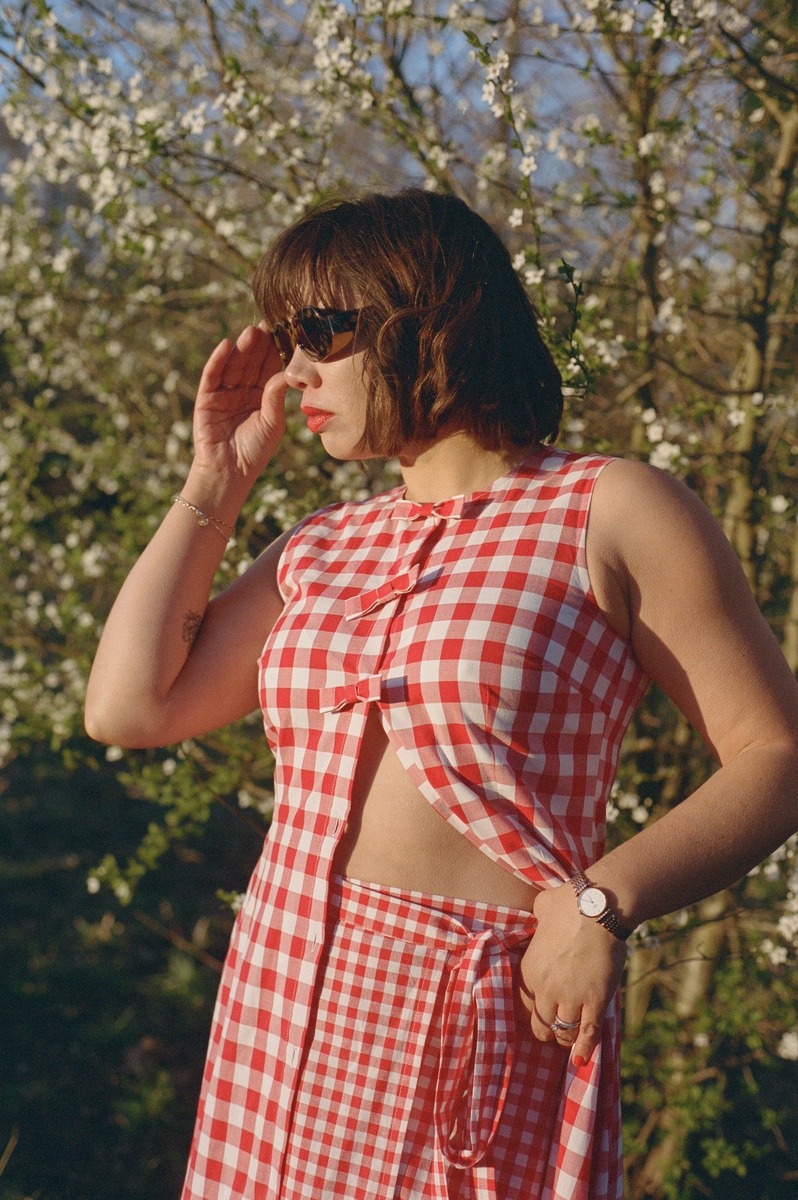
What kind of impact do you hope your brand has on the fashion industry or local communities?
I hope it gives people more options to have fun and be creative with what they wear in a way that’s also responsible. I also hope it helps raise awareness about the issues within the fashion industry and the way we consume clothing. I’m already starting to see that happen, which is incredibly satisfying!
By keeping production local, I also hope to support local economies and contribute to the revival of the domestic sewing industry, which has sharply declined in the UK and many other developed countries.
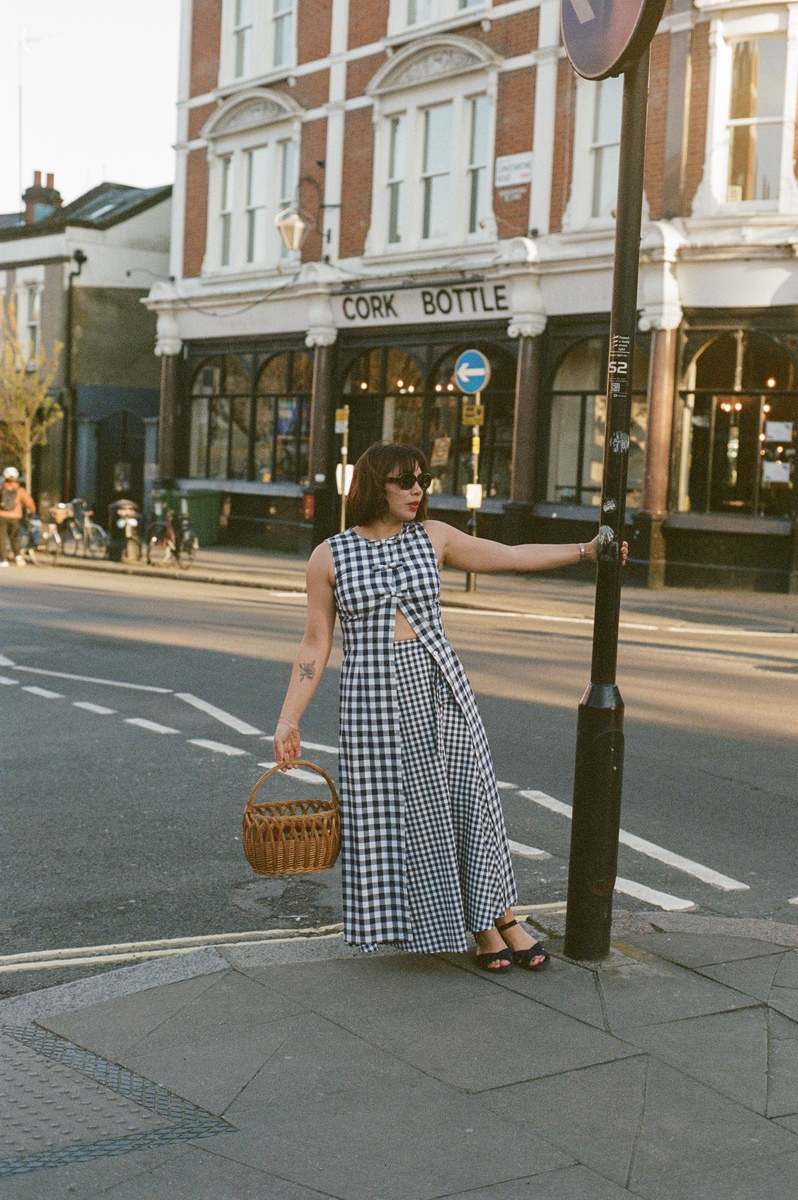
Finally, if you had to describe your brand in three values, what would they be and why?
1. Responsibility
At the heart of Bonkers Bon Coeur is a commitment to growing in a way that keeps people, communities, and the natural world front and centre. I’d love for Bonkers Bon Coeur to become one of the brands proving this kind of responsible growth is not just possible but the future.
2. Beauty
I once read that beauty signals to the brain that we are safe. It’s not frivolous but a powerful way to help us feel calm, regulated, and grounded. I want to create captivating items so people can experience beauty in their daily lives and, in return, feel at ease and capable of living well.
3. Savoir-Vivre
A French phrase loosely translating to “the ability to live well”.
And is that not that what it all comes down to?
The reputation of fashion is often vain or superficial, but I want to shift that narrative. Fashion can be meaningful. It can be a wellness tool, a form of self-expression, and one of many elements contributing to a well-lived life.
It would be amazing to be that old lady looking back at photos saying, “Dang, I looked good. Hell yes, I didn’t hold back from expressing who I was with my clothes. And guess what, I did it while staying true to my social and environmental values.” Totally life goals, right?
P.S. This is the first time I’m publicly announcing this: my family and I are moving back to Paris at the start of summer (we’ve decided it’s time to be closer to family!). This means the Bonkers Bon Coeur operation will be shifting over there, with clothes no longer being made in London, but in Paris!
Unfortunately, this also means UK customers will now face customs and taxes on their orders. So, if you have your eye on something, now’s the perfect time to order before the change takes effect!
As a thank you, here’s an exclusive 20% discount code just for Fizzy readers: FIZZY-BB20.
Explore the story and purchase Bonkers Bon Coeur products here.




